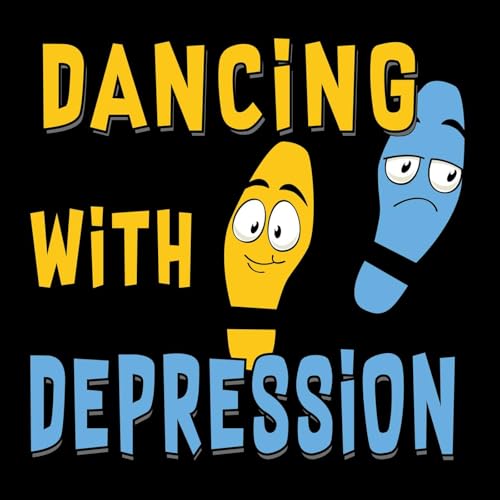Welcome to the Dancing with Depression podcast. I'm your host, Adam Turner. If you've never been to therapy, you might not know what to expect. My only understanding of it came from watching The Sopranos. Dramatic, intense, sometimes a little scary. The truth is, it’s very different. So, it was only fitting to invite my first therapist, Giselle Schochet.Okay, before we go down memory lane, I want to set the stage for today's conversation. If you've never been to therapy before, or if you've considered going, but weren't sure what to expect, this episode is designed for you. We're going to break down what the first session really looks like. So, you can feel a little more at ease with them.a process that just typically is kind of uncomfortable at first. What's cool is you're going to hear it from both sides, my perspective as a client, which I still want to refer to as a patient, but anyways, who has had that experience. And then we're also going to get the perspective of an expert, Giselle, who guides people through this.pretty much every day. So speaking of experts, I'm joined by someone who played an important role in my own personal mental health journey. She holds a Master of Science and is a licensed marriage and family therapist, Giselle Schockett. Thanks for having me, Adam.It’s great to see you. We want to talk a little bit about what that first appointment or scheduling is like but before we dive in, can you share just a little bit about your professional backgroundWhat ultimately led you into this line of work? Okay, so I've been in private practice for 28 years and I started out as an intern going through my master's program at a pastoral counseling center. That's where I got my start and from there, I think I worked there for about five years.While I was working towards my licensure because you must get a certain number of client face-to-face hours to sit for the board to get your license and then Unfortunately that pastoral counseling center went out of business. So, one of my colleagues and I went and opened our own practice. And we were very fortunate, of course, because we were able to take a lot of those clients with us. So that was nice. I also have worked in emergency departments.three of them for, I no longer work in emergency departments, but I worked in three of them for about 20 years at the same time as I was doing private practice. And that is an entirely different situation and a wonderful way to get experience with every mental health issue you can imagine. I really, really enjoy that. And, now I'm just in private practice and kind of easing into retirement, I want to say to anyone who's listening that this is my first time doing a podcast and I am scared to death so I want anyone to understand that Everything new is scary And you just have to take that leap of faith and take the first step and make that phone call and if someone doesn't call you back that unfortunately doesn't mean anything is wrong with you it means that they're not giving good customer service that's all that means so make the next phone call go down your list and find someone that either answersSo as far as how I got to doing therapy, think you'll probably find that no one gets into this business without having their own story. And we all have our own story. I grew up in a very dysfunctional family. I was the youngest of five and never felt like I had a voice around the house. There was a lot of, didn't suffer physical abuse, but my brothers did. And I just always felt like I needed to understand why, how someone could be so awful to another person. And so that was a big part of it. And then when I was probably around eighth grade, I had a traumatic experience where I was chased by some men in a...box truck and that was really scary for me and so my mother took me to therapy and while I don't remember really anything about it I just know it didn't work for me. It was I didn't feel comfortable; the person didn't make me comfortable and so that was something else that I wanted to make sure the people I saw were very comfortable like it was almost you know in your living room talking over a cup of coffee. And that's kind of how I've done my practice. And that translated. Because, you know, I felt that I didn't know the backstory. didn't know how you got into, you know, being a therapist, but I did feel like at times we were just sitting there chopping it up. and so that was nice. And that really is kind of dynamic. As you mentioned you were young. Not that you went to therapy quote unquote against your will, but you didn't really know what was going on. I went willingly, even though I kind of was misled, but we'll talk about that later on. So that really being the part is you know, what should someone expect or can they expect going into their first therapy session from your knowledge? What would you like them to think?Well, I think currently technology has changed from when I first started. Now, ...
Más
Menos
 40 m
40 m 28 m
28 m 28 m
28 m Feb 6 202648 m
Feb 6 202648 m 13 m
13 m 41 m
41 m 29 m
29 m 43 m
43 m
